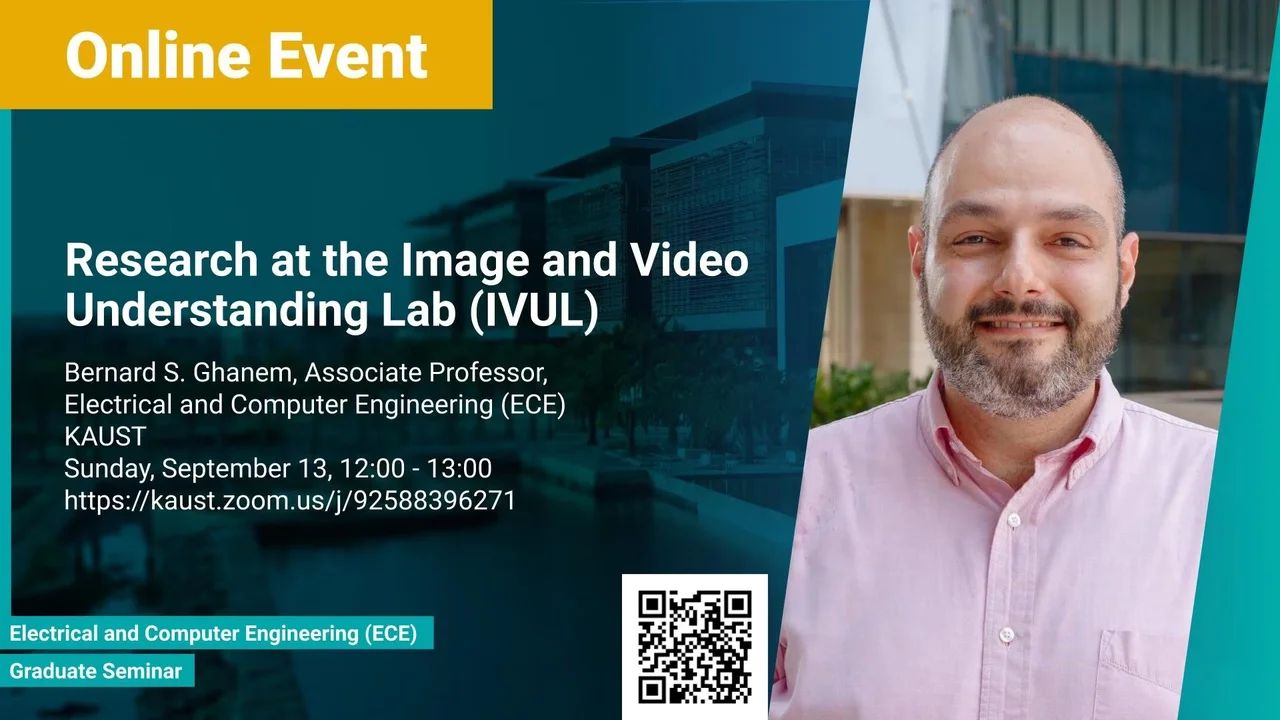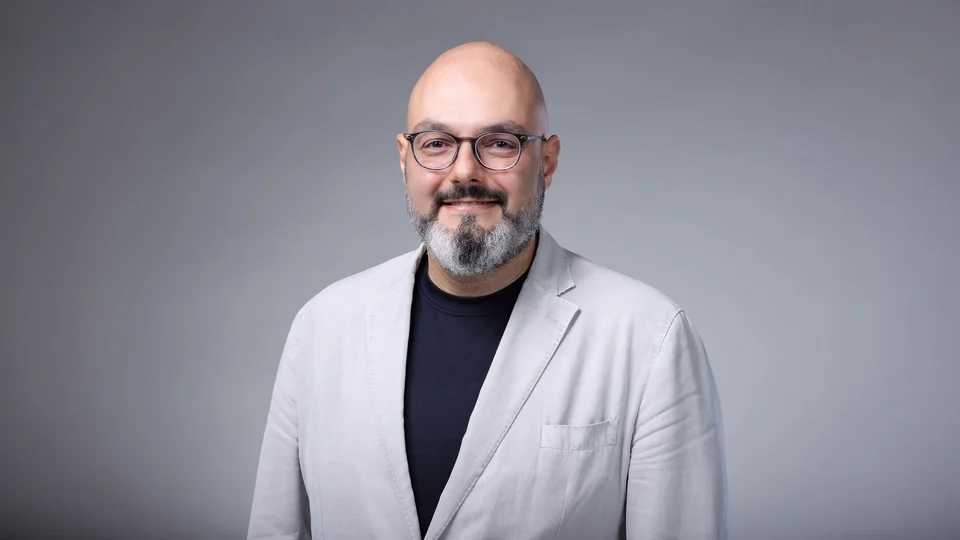
Research at the Image and Video Understanding Lab (IVUL) - Graduate Seminar - ECE
In this talk, I will give an overview of research done in the Image and Video Understanding Lab (IVUL) at KAUST. At IVUL, we work on topics that are important to the computer vision (CV) and machine learning (ML) communities, with emphasis on three research themes: Theme 1 (Video Understanding): We aim to extract meaningful semantic information from large-scale video data by tackling research problems such as object tracking, activity detection, moment retrieval, and language grounding in video. Theme 2 (Visual Computing for Automated Navigation): We develop methodology to enable more accurate, reliable, and robust perception of the visual world for automated navigation applications (e.g. self-driving cars and UAVs). In this theme, we tackle research problems such as object tracking, segmentation, and detection in 3D data, as well as transfer learning from simulation (sim2real). Theme 3 (Fundamentals/Foundations): In this theme, we tackle fundamental research problems in CV and ML that transcend specific applications with focus on deep network theory/analysis (e.g. robustness, certification, and interpretability) and structured optimization methods for large-scale CV/ML problems. Throughout the talk, I will highlight some of the interesting projects at IVUL to encourage students to get interested in the research field.
Overview
Abstract
In this talk, I will give an overview of research done in the Image and Video Understanding Lab (IVUL) at KAUST. At IVUL, we work on topics that are important to the computer vision (CV) and machine learning (ML) communities, with emphasis on three research themes:
- Theme 1 (Video Understanding): We aim to extract meaningful semantic information from large-scale video data by tackling research problems such as object tracking, activity detection, moment retrieval, and language grounding in video.
- Theme 2 (Visual Computing for Automated Navigation): We develop methodology to enable more accurate, reliable, and robust perception of the visual world for automated navigation applications (e.g. self-driving cars and UAVs). In this theme, we tackle research problems such as object tracking, segmentation, and detection in 3D data, as well as transfer learning from simulation (sim2real).
- Theme 3 (Fundamentals/Foundations): In this theme, we tackle fundamental research problems in CV and ML that transcend specific applications with focus on deep network theory/analysis (e.g. robustness, certification, and interpretability) and structured optimization methods for large-scale CV/ML problems.
Throughout the talk, I will highlight some of the interesting projects at IVUL to encourage students to get interested in the research field.
Brief Biography
Bernard Ghanem is currently an Associate Professor in the CEMSE division and a theme leader at the Visual Computing Center (VCC) at KAUST. His research interests lie in computer vision and machine learning with emphasis on topics in video understanding, 3D recognition, and theoretical foundations of deep learning. He received his Bachelor’s degree from the American University of Beirut (AUB) in 2005 and his MS/PhD from the University of Illinois at Urbana-Champaign (UIUC) in 2010. His work has received several awards and honors, including the Henderson Graduate Award and CSE Fellowship awards from UIUC, four Best Paper Awards for workshops in CVPR 2013&2019 and ECCV 2018&2020, a two-year KAUST Seed Fund, and a Google Faculty Research Award in 2015 (1st in MENA for Machine Perception). He has co-authored more than 100 peer reviewed conference and journal papers in his field as well as two issued patents.
Visit ivul.kaust.edu.sa and www.bernardghanem.com for more details.
